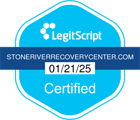Entering recovery is a huge accomplishment—one that’s both courageous and life-changing. As you look ahead, it’s natural to envision a future where addiction no longer controls your life. You might be excited to dive into goals and start transforming your life, but remember to take it one step at a time. Setting realistic, achievable goals is key to building a strong foundation for lasting recovery. With the right approach, goal-setting can become one of your most valuable tools, offering you focus, purpose, and motivation without the pressure to be perfect.
- Start with Your Big Picture Vision
To begin setting goals, think about the big picture. Imagine what a fulfilling, addiction-free life looks like for you. Think about what is important to you. Is it to build a stronger relationship with a loved one? To get back into your career? Or, maybe you want to find a new hobby that brings you joy. While your vision may feel distant, it can serve as a motivational compass, helping you stay focused even during tough times.
Having this vision provides purpose, reminding you why each step you take in recovery matters. But keep in mind, your vision is not something you will accomplish overnight. It can take time.
- Focus on Small, Short-Term Goals
Long-term visions give you direction, but short-term goals are what make the journey manageable. Think of these as the building blocks of your recovery. By breaking down your vision into smaller, achievable steps, you can make progress without feeling overwhelmed.
A short-term goal may be less overwhelming, and meeting the goal can be motivating. For example, you may have a vision to improve your overall health. You can break it down into a smaller goal, such as taking a 10-minute walk three days a week. Over time, you can increase this goal to walking every day or adding more time to your walk.
- Set Realistic Goals to Stay Grounded
It’s easy to get caught up in the excitement of recovery and set high-reaching goals. But goals that are too ambitious or vague can be overwhelming and may lead to disappointment. Setting realistic goals can help you move forward in a way that feels achievable and encouraging.
Realistic goals aren’t about limiting yourself; they’re about building confidence with each success. Small, achievable goals keep you motivated and allow you to celebrate steady progress, one day at a time.
- Make Your Goals Specific
Goals like “I want to feel better” or “I want to improve relationships” are well-intentioned but can feel hard to track. When you make your goals specific, it is easier to stay focused and see your progress.
For example, instead of saying, “I want to feel better about myself,” try something more specific such as: “I will write down three positive things about myself each morning.”
Clear, specific goals allow you to monitor your growth, adjust as needed, and celebrate the successes along the way.
- Allow Room for Flexibility
Recovery is rarely a straight line, and your goals don’t have to be rigid either. As you move forward, you may find that some goals feel out of reach, or your priorities might shift. This is completely normal and doesn’t mean you’re failing. Goals should be adaptable, supporting you through the ups and downs of recovery.
If a goal feels too overwhelming, consider adjusting it. And if it feels too easy, add a small challenge to keep yourself engaged. Your recovery journey is unique, and your goals should be, too.
Don’t forget to celebrate every small victory you make on your journey. Recovery is a journey, and every step forward counts.
The Importance of a Strong Support System
Setting and sticking to goals can be challenging, especially when you’re doing it alone. Sharing your goals with trusted friends, family members, or support groups such as AA or NA can help keep you on track. These people can encourage you, provide accountability, and celebrate your progress with you.
Whether it’s a sponsor, therapist, or close loved ones who understand your journey, having a support network reminds you that you’re not alone. They can also offer perspective when you feel stuck or help you adjust your goals to keep you grounded and motivated.
If you are struggling with a substance use disorder, you do not have to feel alone. At Stone River Recovery Center in San Antonio, Texas, we have programs and services to meet your specific needs. Please reach out to us to learn more about how we can help put you on the path to a lasting recovery.








